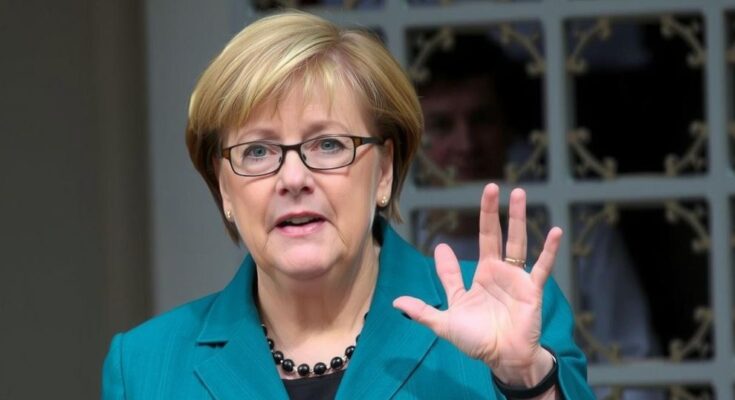German President Frank-Walter Steinmeier has dissolved parliament and scheduled elections for February 23 after Olaf Scholz’s coalition collapsed. The upcoming election will focus on crucial issues such as security and immigration, exacerbated by a recent violent attack. The conservative CDU/CSU leads in polls while the SPD and AfD push for differing policies on key issues like defense and economic recovery.
On February 23, Germany will hold an early general election following the dissolution of parliament by President Frank-Walter Steinmeier, prompted by the recent collapse of Chancellor Olaf Scholz’s coalition. The coalition’s downfall stemmed from internal disputes regarding strategies to rejuvenate the nation’s economy and was exacerbated by a tragic car-ramming incident at a Christmas market, claiming five lives and injuring over two hundred. This event has intensified discussions concerning national security and immigration, which are expected to be focal points in the upcoming election campaign.
President Steinmeier has called for a respectful and decent campaign environment, highlighting the critical need for political stability. He specifically noted that hatred and violence should not permeate the elections. Meanwhile, Chancellor Scholz, despite his party’s dismal polling performance, has urged the nation to unite against adversity and not let animosity define social coexistence. Scholz’s Social Democrats are presently polling at only 15 percent, far behind their conservative rivals, the CDU/CSU, which leads the polls with approximately 32 percent. The far-right Alternative for Germany (AfD) follows with 19 percent, and they have strongly criticized immigration policies in light of the recent attack.
Both the CDU/CSU and SPD proponents are voicing their commitment to continued support for Ukraine amidst the ongoing Russia-Ukraine conflict. Their proposed economic revitalization plans will involve upgrading infrastructure and investment initiatives. Additionally, the SPD seeks to enhance Germany’s green energy strategy, while the CDU has articulated intentions to reassess the country’s nuclear policies and reverse planned transitions away from combustion engine vehicles. Such economic and environmental strategies will play a significant role in the election discussions.
German politics have been characterized by a coalition government that struggles to maintain unity, particularly under challenging economic conditions and external pressures. Olaf Scholz’s administration recently lost cohesion leading to parliament’s dissolution and the subsequent call for early elections, highlighting not only the fragility of political alliances but also the urgent need to address pressing issues including economic instability, security, and immigration. The tragic events at the Christmas market shed light on public concerns regarding safety and societal integration. As parties prepare for campaign strategies, key debates surrounding economic growth, military obligations, and climate policies are likely to dominate the electoral discourse.
The early elections scheduled for February 23 present an opportunity for German voters to reconsider their political priorities against a backdrop of instability and pressing challenges. The need for a respectful and constructive campaign, as emphasized by President Steinmeier, is essential to lay the groundwork for a stable government capable of effectively addressing the economic and social issues facing the nation. The outcomes of this election will shape Germany’s direction regarding immigration, defence, and climate policies for years to come.
Original Source: www.easternprogress.com




